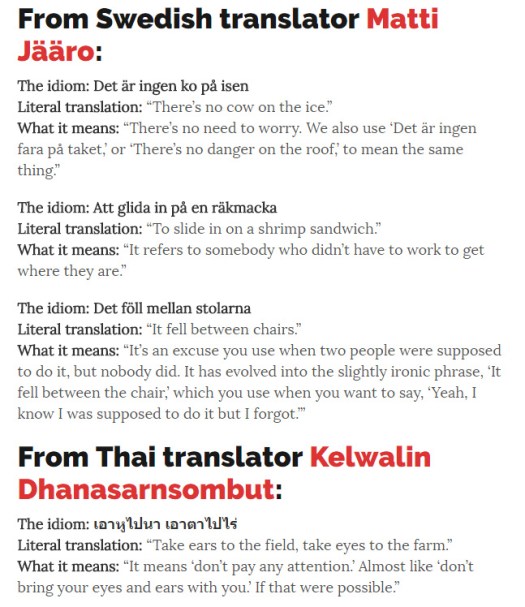So embedded are our own culture’s idiosyncrasies that we generally take them for granted. This is particularly true when it comes to our idioms. That’s why, when I came across this list of 40 idioms that don’t translate on TED-Ed, I just knew it would make an intriguing provocation.

Other resources for students inquiring into language might include this animated map of “how Indo-European languages may have evolved:”
Or this video, also from TED-Ed on how our languages evolve (might be a little complex for younger students, but you never know…):
Provocation Questions:
- Why do humans use figurative language?
- How do you think idioms from certain countries are related to the way of life in that country?
- How does language diversity affect our world?
- How are human beings connected through language even when we speak different words?
- How does becoming more fluent (readers and writers) in our own language help us? How does studying other languages help us?
featured image: DeathToTheStockPhoto

